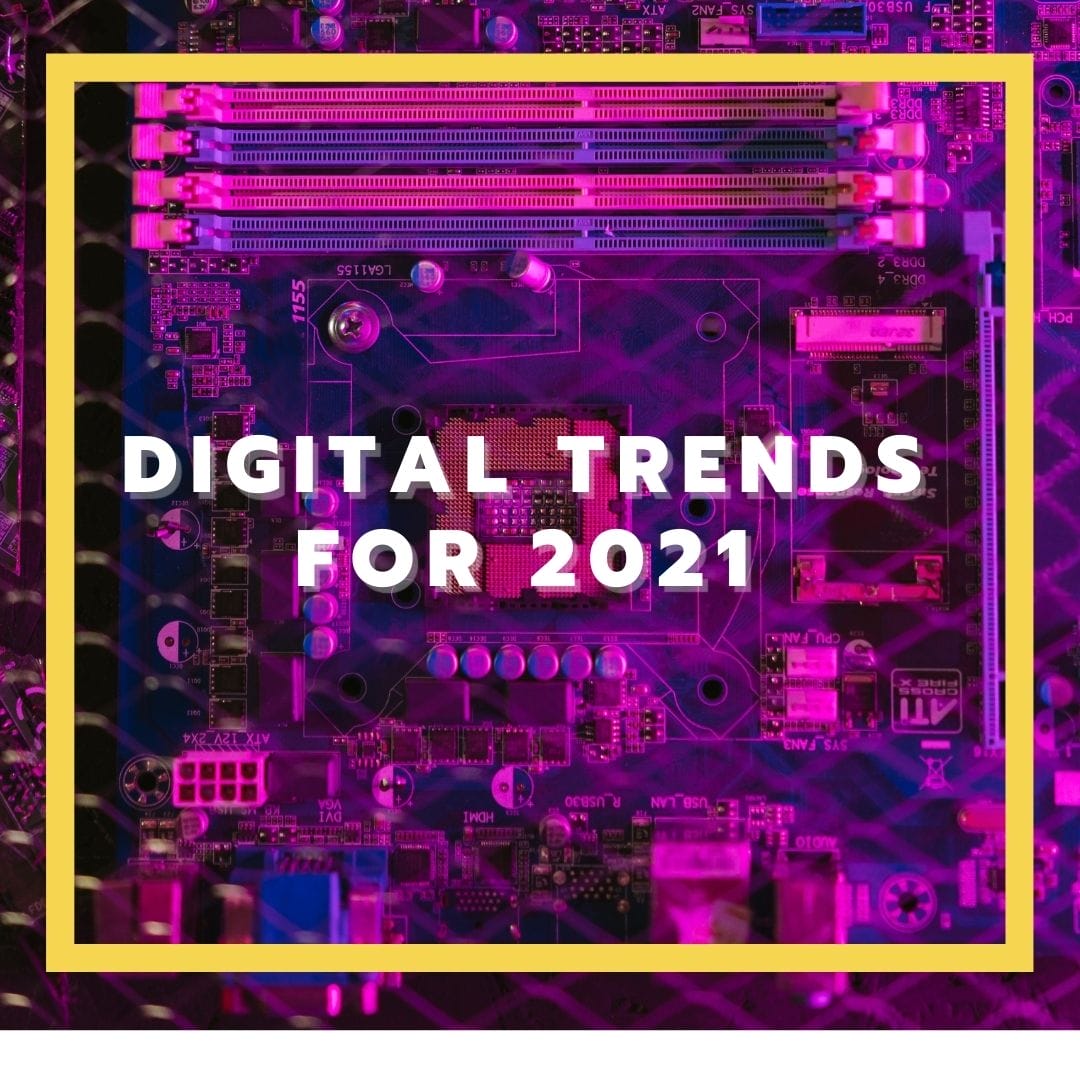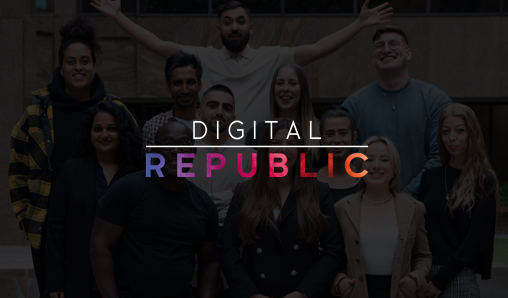
The Big Digital Skills Switch In Retail
Fashion has been rocked by wave upon wave of redundancies over the past six months, as the Covid-19 pandemic reshapes the future of the high street. Thousands of roles have been axed Marks & Spencer, John Lewis and Arcadia Group among a great deal more.
Many of the industry job losses have focused on head office or retail roles – M&S, for example, announced plans in August to cut 7,000 roles in stores, regional management and in its central support centre. The same month, River Island said it would cut 350 store roles in a restructuring.
Redundancies may be rife, but digital skills are in hot demand. One in seven UK retailers have created new digital roles as a result of an increase in online shopping driven by the pandemic, a study by Barclays Corporate Banking in September showed. For example, supermarket Tesco is creating 16,000 jobs to support the “exceptional” growth of its online business focused on home deliveries, including 10,000 staff members to pick orders.
One thing we’re committed to doing is hiring young people
Henry Birch, CEO, The Very Group
The Very Group is another business recruiting for digital skills. The Liverpool-based group, which owns Very and Littlewoods, plans to add 100 new roles, more than half of which will be technology related.
CEO Henry Birch tells Drapers that people working in bricks-and-mortar-focused roles can make the shift to digital careers: “If someone is bright and adaptable, then they can learn a new channel and medium very quickly. Clearly there are some roles in which digital experience and technical experience will count for more [such as data science], but in terms of managing operations, buying roles, creativity roles – those are all functions and skills that can be transferred from one medium to another.”
He says Very would hire people with non-digital backgrounds: “I have sympathy because it does seem like there will be a number of retailers and shops that will close, which will obviously effect employees from a retailing background. I would hate to feel they couldn’t get a role in digital.
“One thing we’re committed to doing is hiring young people. We have an apprentice scheme, we do work placements for universities and continue to invest in new people, including those with no digital experience. We want people with the right attitude and approach.”
Physical and digital knowledge need to work as one and be synergised
Jonathan Carmichael, senior retail operations manager of omnichannel, Ted Baker
Alongside hiring externally, some companies are upskilling existing staff. In 2018, M&S partnered with Decoded, a tech firm that teaches data and coding skills. M&S and Decoded worked together on “The Data Fellowship” – an 18-month programme funded by the government’s Apprenticeship Levy. Almost 200 members of staff have benefited from the course. In addition, 500 senior staff, including CEO Steve Rowe, took Decoded’s “crash course” in the basics of coding, as the retailer aims to become a digital-first retailer by making data-led decisions and enhancing ways of working.
Theory and practice
Another business that has retrained staff to transition them into digital roles is Ted Baker. Jonathan Carmichael, who in October moved to Uniqlo as IT product manager, spent almost two years as senior retail operations manager of omnichannel at Ted Baker. He joined the brand in 2012 as a stockroom assistant at its concession in Selfridges. He held store roles for four years before moving to the retail operations team four years ago, and then transitioning into omnichannel operations in 2019.
Ted Baker provided training in its in-house ecommerce technology and sponsored his Prince 2 Foundation and Practitioner qualification – a course that teaches the theory of project management, and applies it to projects, so learnings can be implemented in both digital and physical retail environments.
If people are willing to learn different, dynamic ways of working, then there’s no reason they shouldn’t thrive
Emma Watkinson, co-founder and CEO of SilkFred
Carmichael says store experience is a benefit for omnichannel retailers: “[Physical and digital knowledge] need to work as one and be synergised, you can understand challenges faced by store teams and how digital techniques work in a retail store – and visa versa. Employing someone with both skills gives the company more flexibility and agility, making it easier to introduce new projects.”
Some digital roles are easier to transition into than others: data science roles, for example, require specialist knowledge, but in other areas, such as logistics, transferable skills are more beneficial, says Emma Watkinson, co-founder and CEO of SilkFred: “Logistics requires keen operations minds and grassroots understanding of getting things from A to B, and how important the end experience is for the customer, which people working in non-digital roles may have.”
However, she adds that candidates applying for digital roles from a physical retail background may need to adopt a change of mindset: “The pace and dynamics of ecommerce are very different – there is a lot more information available from customers in ecommerce rather than what’s overheard on the shop floor, for example. But if people are willing to learn different, dynamic ways of working, then there’s no reason they shouldn’t thrive.”
Nicola Wensley, partner at Page Executives, which specialises in fashion retail recruitment, reports an increase in demand for roles such as chief digital officers and UX (user experience) designers since the Covid-19 pandemic started: “There has been a big shift for retailers to sell through their digital channels, and invest quickly to ensure that they have the best technology and people to support this.
It is now more important than ever to have the best people in areas such as range planning, product development, sourcing and supply chain
Nicola Wensley, partner at Page Executives
“But just because the channel has changed, it doesn’t mean that the customer has. It is now more important than ever to have the best people in areas such as range planning, product development, sourcing and supply chain. Having skilled people in the team to ensure that the right products are in the right place at the right time, and are being delivered to the target audience, is key. These are all the same skills, regardless of whether the person has been doing the job for a fashion retailer with 100 stores, or a pureplay etailer.”
Upskill costs
Although there are benefits to retaining existing retail-skilled staff, retraining them for digital roles takes investment, in both time and money, which can lead retailers to recruit externally.
Yasha Mirsamadi, associate director of ecommerce recruitment agency Cranberry Panda, says: “Companies look outside first to bring [digital] knowledge straight in [rather than retraining existing staff], because of speed and access to talent. It depends whether a company is willing to invest in not only training but the time incurred.”
Harveen Gill, co-founder and managing director of fashion, retail and beauty recruitment firm HGA, agrees that retraining for digital roles is an issue: “Candidates that I speak to are nervous and don’t know how to retrain and where to go. As an industry, we don’t have programmes that are mainstream and established. People know that there’s a turning point [for demand in digital roles] which was fast changing pre-Covid, and the pandemic has caused that change to happen. The number of retail roles out there is vastly reduced.”
Gill says retraining those who have been made redundant during Covid for digital roles should be a joint responsibility – between the government, companies and retail industry bodies. “Demand outstripped supply in digital tech roles even before Covid. In the UK we don’t have a robust effort by government, private, public sector and industry bodies that focuses on what steps we take as a country to upskill and reskill many individuals to give them what the new, or current, world will need.”
Sunderland-based, independent multichannel retailer Designer Childrenswear provides ecommerce training for staff, and recently upskilled a sales adviser in online visual merchandising to prevent that member of staff from leaving the company.
Ecommerce director Dionne Evans says that upskilling staff does require investment but existing staff are more familiar with the company’s ethos and stock, which makes it easier for them to connect with and sell to the customer.
“Anyone can have a digital visual merchandiser title, but it doesn’t mean they know the product better than existing staff. As an independent, it’s easier for us to look internally – we have lots of opportunities [for movement] within the company. We invested because we didn’t want to lose that person.” Evans adds that doing so has paid off, as the knowledge the valuable staff member has was retained and benefited the company.
Those who do make the leap into digital roles may find themselves in an unfamiliar environment. Mary Anderson-Ford, managing director of Aqua Retail, which specialises in merchandising recruitment, says that although the planning and trading principles remain the same, candidates for digital roles need to be able to analyse data in more detail.
“The other issue is that of pace,” Ford continues. “Figures are continually analysed, and actions implemented on the spot. The chaos of a Monday [after weekend trading] may have gone, but is replaced with a sense of immediacy that comes with working in a world where you can agree and implement a promotion, and see it begin to impact sales at the touch of a button.
“The pace of merchandising is there but looks different in a digital space. However, existing staff members would know the customer and collections already, and so would pick things up more quickly than an entirely new employee.”
Experience gleaned from specialising in physical retail environments is seen as an asset for digital roles, as it shows knowledge of the company and how to provide the best customer experience. Retailers that invest in staff will reap the benefits, but this comes with both financial and time constraints. Nevertheless, fashion retail employers should not be dissuaded from hiring those without digital experience if a candidate has the right mindset and thirst to learn.
Originally posted by Gabriele Dirvanauskas
If you found this blog interesting, please check out this one too.
Digital analytics, data science, cloud, programmatic or optimisation expert, and looking for a job at the moment? Check out our latest live vacancies here
Contact us submitting a quick form here. We are here to support you!



